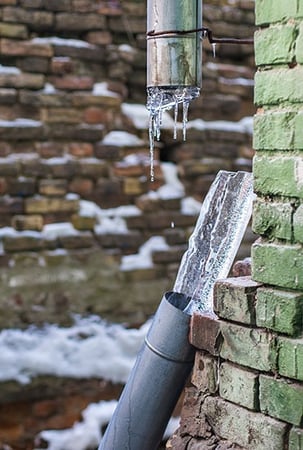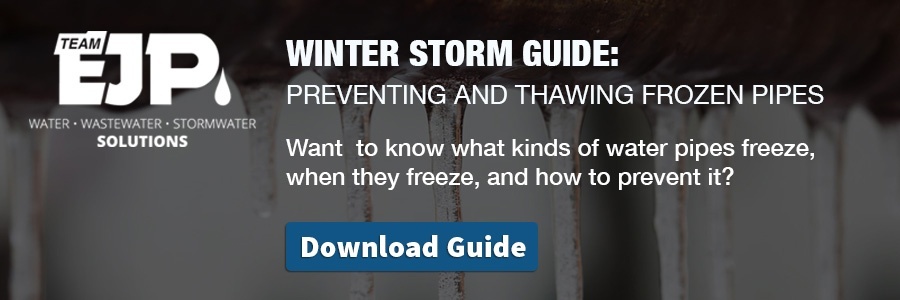How to Prevent Freezing Pipes and the Destruction They can Cause
- Home
- Team EJP Blog
- How to Prevent Freezing Pipes and the Destruction They can Cause
- Nov 26, 2018 11:04:31 AM
- Everett J. Prescott
Uh oh! It's looking like it may be a cold winter this year. One of the biggest concerns homeowners frequently run into over the winter is frozen pipes. When the water in your pipes freezes, they can burst under the pressure from the ice as it freezes or thaws. Fortunately, there are a number of ways you can get around the problem to prevent frozen pipes and water damage this winter. Here are a few tips to help get you started.

- Wrap It Up: The first step to prevent frozen pipes is to add insulation to the outside of your supply lines. This can come in the form of foam that is slit down the side to fit around the pipes or fiberglass insulation which spirals around the pipe and is held in place by plastic or tape. Adding insulation to the pipes allows the water's thermal mass to keep them from freezing.
- Heat It Up: If adding insulation isn't sufficient to keep the pipes from freezing, as is a common problem in our own farmhouse crawlspace, try adding heat tape to the pipe. This is a long loop of electrical resistance wire that can attach to your pipes, keeping them warm enough to prevent them from freezing. Look for a model that includes a built-in thermostat for ease of use.
- Shut It Off: If you don't need water running to a particularly cold part of your home or an outbuilding, turn the water off at the shutoff valve if one is available, then open a valve on the other side of the shutoff valve to allow any standing water to drain out of the lines as the cold strikes. Just remember, if you shut it off and the lines freeze, it may be a while before you can restore water to that area.

- Open your cabinets: If you have sinks on the exterior walls of your home, open the cabinets underneath those sinks to help encourage air flow to keep the supply lines warm and thawed. If your home temperature drops due to a furnace issue, consider adding a heat lamp or lamp with an incandescent or CFL bulb under the sink to keep it warm.
- Keep It Running: It's much harder for running water to freeze than still water, partially because the water coming into your home is at ground temperature. Keep a steady drip of hot and cold water running in your fixtures to prevent your pipes from freezing up. Running the hot water keeps your hot water heater from overheating due to lack of water supply.
- Open The Valves: If the pipes haven't frozen too badly, leaving the valves open for your faucets and fixtures provides a place for the pressure to shift as the pipes thaw. As the thawing water can flow out of the fixture, it doesn't build up the pressure in the pipes, causing a potential pipe break and preventing damage.
By taking the time to make sure your pipes are taken care of this winter, you can prevent inconvenient freeze-ups and the significant damage they can cause. If you have frozen pipes or need to locate a leak caused by a ruptured leak in your supply line, Team EJP's 24-hour service can help. Please feel free to reach out today to get help.
